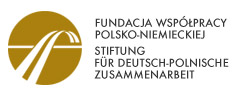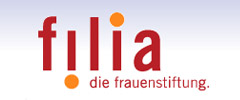Managing Wastewater through Global Partnership
Reducing the pollution of the Black Sea by introducing sustainable wastewater and nutrient management in rural Georgian communities
04.04.2016 | WECF Project
| Countries: | Georgia |
| Donors: | The United Nations Environment programme (UNEP) |
| Partners: | RCDA (Rural Communities Development Agency) |
| Issues: | Water & Sanitation |
| Duration: | 04/2014 - 05/2016 |

Black Sea coast nearby the target villages Khorga and Chaladidi
BACKGROUND OF THE PROJECT
Georgia is bounded to the west by the Black Sea with a coastline of 310 km. One of the major problems of the coastal areas of the Black Sea is the discharge of insufficiently treated sewage waters, infiltration of animal manure and land erosion, resulting in microbiological contamination as well as eutrophication and poses a threat to public health. Since the 1980s, the Black Sea pollution has also greatly harmed Georgia’s touristic industry.
There is a very low awareness on the causes of water pollution and water related diseases at local, regional and national level. Illnesses related to bad hygiene and water quality, such as diarrhea and hepatitis A, are widespread in the area.
The target villages Khorga with 1,320 inhabitants and Chaladidi with 1,245 inhabitants are located alongside river Khobi. Both villages belong to the Khobi Municipality, Samegrelo Zemo-Svaneti Region. The state of sanitation in both communities is deplorable. Major problems faced by communities in this regard may be attributed to: Low awareness about the causes of water pollution; no locally affordable and sustainable solutions addressing poor water and sanitation; subsidized cheap fertilizers affecting water supplies; manure stored and disposed close to the premises and the water supplies.The common pit latrines pose a number of health and environmental risks.
All together eleven villages are located alongside river Khobi with the population of 22,000 inhabitants.
OBJECTIVES OF THIS PROJECT
Overall Objective:
Reducing pollution of the Black Sea caused by human settlements at the Khobi river flowing into the Black Sea.
Activities under the project will focus on prevention of environmental pollution, on education, health and hygiene matters so that physical facilities are properly used and maintained. The project will raise awareness and contribute to saving biodiversity in the region and enhance the tourism industry in the region. Lessons learnt from the project will be used for up-scaling and replication in nine other villages in the region
Specific Objectives:
Raising awareness in the target region about minimizing the pollution of the Black Sea.
Demonstrating and promoting safe resource oriented solution to stop the infiltration of human and animal excreta into the river and the groundwater.
View on Khobi river alongside Chaladidi village
PROJECT ACTIVITIES
With a holistic approach, the project will address the problem of water contamination, caused by widely used pit-latrines, poor management of water resources, uncontrolled animal grazing, intensive use of chemical fertilizers, open and unsafe disposal of waste, including animal manure. The project will identify appropriate simple, affordable decentralized sanitation systems, such as urine diverting dry toilets (UDDT) and promote their adaptation. The action will raise awareness and demonstrate appropriate technologies (for toilets, animal manure disposal, production of fertilizers, arranging community-managed landfills, recycling, composting, water treatment, etc.) with the participation of the communities to be served.
The activities can be divided in three parts:
A. Increasing public participation and raising awareness
- Organizing public meetings and establishment of community-based working groups
- Disseminating project information and results via local, regional and national media
- Disseminating project results at the international level
B. Development and dissemination of information
WECF and partner developed and published informative and educative information materials on sustainable sanitation and wastewater treatment systems, on water and sanitation safety planning, on safe use of human excreta according to WHO guidelines, safe management of animal excreta, on composting and on prevention of land erosion. The materials will be disseminated on local level, be available at the nearby resource centre and be available for download in Georgian and English on the webpages of Global Wastewater Initiative (GWI), WECF and RCDA.
Five flyers and several postcards have been developed and are available for download. Publications, including the flyers and postcards, are listed below.
C. Practical training, implementation of demonstration objects and workshops
Besides the theory of the issues mentioned in Part B, practical trainings will be conducted and accompanied by demonstration objects and activities.
The project is funded by the United Nations Environment Programme UNEP
Project partner in Georgia:
Rural Communities Development Agency
LIST OF PUBLICATIONS DEVELOPED UNDER THIS PROJECT
Publications:
- Survey Report Georgia: Status of solid waste and excreta management in Khorga and Chaladidi
- A people-centered approach to sustainable sanitation and wastewater management, water supply and environmental protection. Read RCDA's web item here
- “The SDGs are coming: What we measure is what we treasure!”
- Managing Wastewater through Global Partnership
- Kick-off meeting in Khamiskuri, Georgia: project “Managing Wastewater through Global Partnership”
- Revised Manual on Principles, Operation, Construction of Urine Diverting Dry Toilets. Learn more about the manual here.
- Georgia: Exposure visit of Khorga and Chaladidi Community Representatives to Khamiskuri Water and Sanitation Center
- Georgian small-scale water supplies polluted with coliform bacteria
- The status of solid waste and excreta management in Khorga and Chaladidi, Georgia
- Greywater Treatment in Sand and Gravel Filters: Low Tech Solution for Sustainable Wastewater Management
- A new project on water and sanitation in two communities of Western Georgia
- Greywater Treatment in Sand and Gravel Filters
Flyers:
- Urine Diverting Dry Toilet - Solution for Safe Sanitation & Agriculture
- Most Important Bacteria and Chemical Substances to be Analysed in Drinking Water in the Region of Khamiskuri and Khobi
- Why to Test the Quality of Your Drinking Water?
- Urine – The Yellow Gold
- Compost – the Black Gold
- UDDT Sanitation manual
Postcards:
- Let’s talk about keeping livestock
- Let’s talk about your wastewater
- Let’s talk about your toilet
- Contact information
The flyers and postcards are available in the Georgian language here.
Related News
Together for sustainable sanitation and water security worldwide!
Stockholm, 26-31 Aug 2018: WECF participated in the World Water Week 2018 to further support the worldwide implementation of SDG 6
01.09.2018
World Water Day 2018!
22.03.2018
WECF presents Water and Sanitation Safety Plans to African, South American and Asian officials and stakeholders
WECF held a one day training on Water and Sanitation Safety Plans (WSSP) at Technical University of Dresden
17.10.2016
UNEP highlights WECF project in Black Sea on new homepage
The United Nations Environment Programme (UNEP) lists the WECF project in Georgia on their new homepage as a "Success Story".
04.05.2016 | WECF
The status of solid waste and excreta management in Khorga and Chaladidi, Georgia
Survey report by RCDA and WECF
03.12.2014
Georgian small-scale water supplies polluted with coliform bacteria
Testing bacterial contamination of water with a portable laboratory is now possible in Georgian rural areas
22.09.2014 | WECF
Georgia: Exposure visit of Khorga and Chaladidi Community Representatives to Khamiskuri Water and Sanitation Center
Introducing sustainable wastewater and nutrient management in rural Georgian communities
22.09.2014
Thesis or Internship in the Caucasus on the subject of Sustainable Sanitation
Developing and piloting a simple on-site filter system for greywater treatment for households and farms up to 50 PE
11.08.2014 | WECF
Kick-off meeting in Khamiskuri, Georgia: project “Managing Wastewater through Global Partnership”
Project and planning were discussed and the target villages were visited.
11.06.2014 | WECF











































